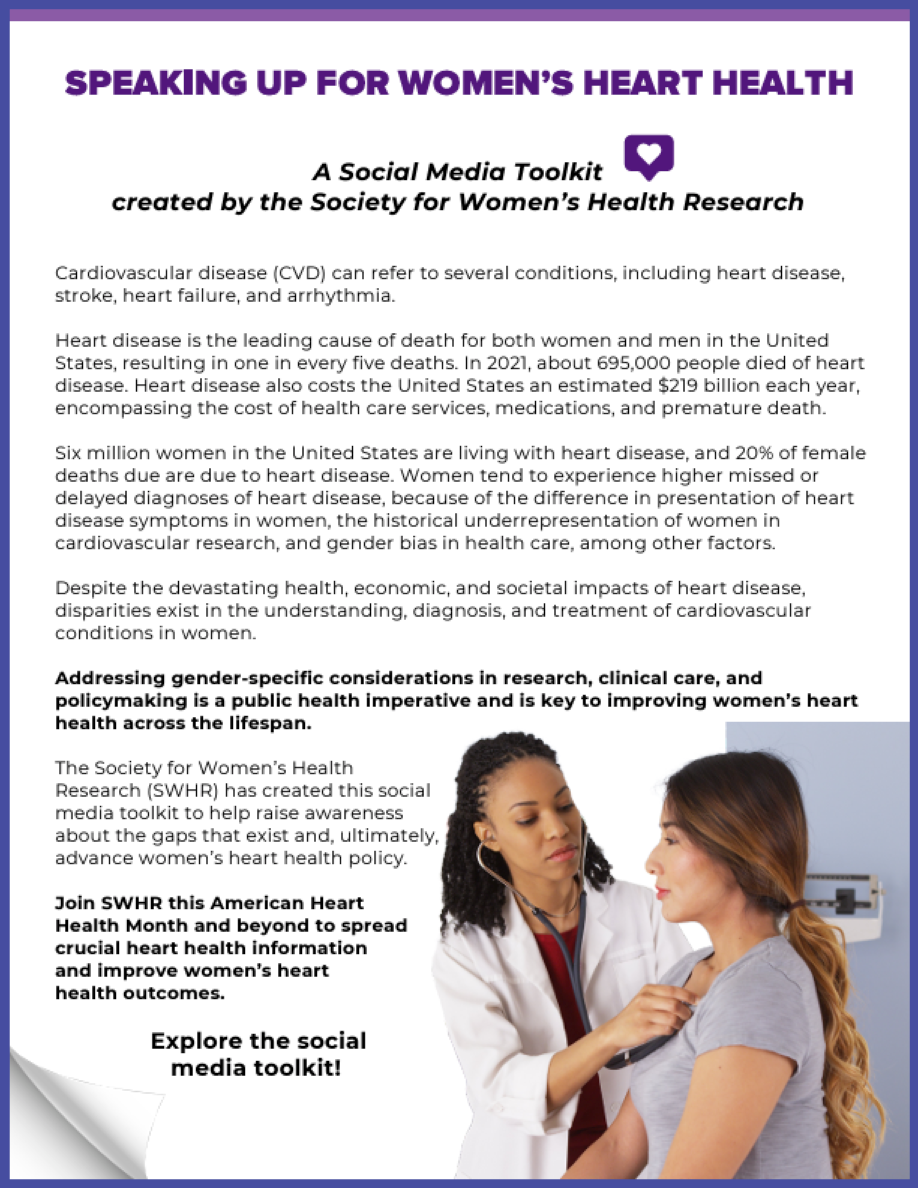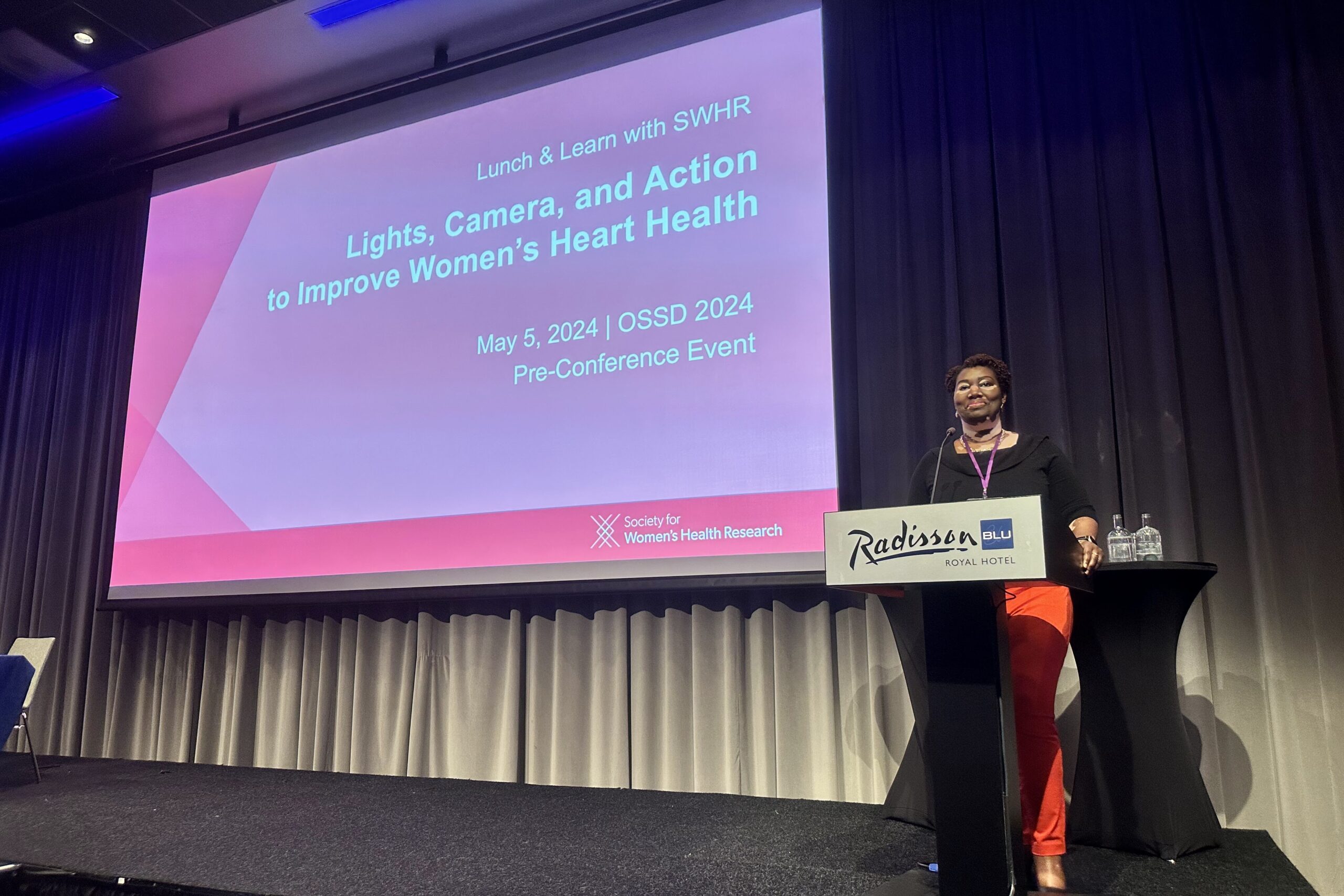Cardiovascular disease (CVD) broadly describes conditions that include heart disease, stroke, heart failure, and hypertension. CVD is the leading cause of death in both women and men in the United States. Risk factors for the developing CVD include older age, obesity, diabetes, inactivity, family history, and smoking for women and men alike. However, research has shown that there are significant sex differences between men and women concerning the pathophysiology, symptom presentation, and efficacy of diagnostic tests and medical therapies for heart disease.
There are also persistent gender disparities in cardiology clinical trial enrollment, and women are more likely to experience delayed heart disease diagnoses and therapeutic interventions than men. Addressing gender-specific considerations in clinical care and policy formulation is a public health imperative and is key to improving women’s heart health across the lifespan.
Heart Health is part of the SWHR Healthy Aging Network, which engages the following focus areas: Alzheimer’s Disease, Bone Health, Heart Health, Menopause, and Obesity.











